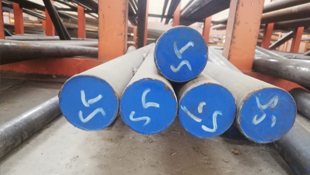22 - 220 BETWEEN NOBLE 7131
WHAT IS CEMENTATION STEEL?
Cementation steels are low carbon, unalloyed or alloyed steels that are hard and wear resistant, softer and tougher in the core, used in the manufacture of parts resistant to variable and impact stresses.
Gaining these properties to the part is achieved by impregnating the steel surface with carbon. Cementation steels, gears, shafts, piston pins, chain diamonds, sprockets and pulleys, discs, guide bearings, rolling bearings, rollers, some measurement and control instruments, medium-forced or forced parts, cold-blown or extruded parts They are used in the manufacture of parts such as cutting tools.
CEMENTATION PROCESS
Cementation process is one of the surface hardening methods and is the oldest and most widely used.
It is essentially the process of impregnating the surface of a low carbon steel piece with carbon. The carbon impregnation process occurs as a result of gas-metal reaction, by heating the steel piece in an environment containing carbon monoxide (CO) to the austenite phase temperature. Generally, a temperature between 850-950 C is used, this temperature is called CEMENTATION TEMPERATURE.
AISI/SAC | DIN | AFNOR | BS |
8620 | 20NiCrMo2-2 | 20NCD2 | 805M20 |
7131 | 16MnCr5 | 16MC5 | 527M17 |
7147 | 20MnCr5 | 20MC5 | - |



